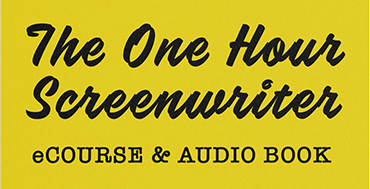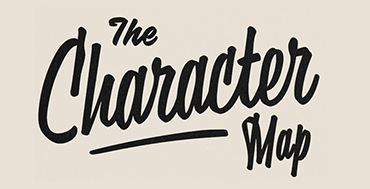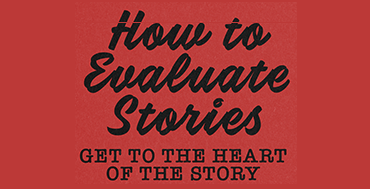 I was having a conversation with a friend the other day about archetypes. I must admit, I am not a fan. To me an archetype is a job description: a wizard, trickster, mother, hero, outlaw, seductress, judge, or mystic simply do different kinds of work in a story.
I was having a conversation with a friend the other day about archetypes. I must admit, I am not a fan. To me an archetype is a job description: a wizard, trickster, mother, hero, outlaw, seductress, judge, or mystic simply do different kinds of work in a story.
Let’s take the first job on the list, wizard. The Harry Potter book and film series features many different wizards. Each has his or her own individual kind of wizardry and distinctive personality.
That’s the problem with archetypes. There is no one way to be a wizard. There are lots of different ways to play that role in a story. Different wizards view their role or job differently, believe different things about the world, and frame their responsibilities very differently. In a story, a character’s job or role is much less important than how the person sees the world, understands that role, and fulfills his or her duties.
That’s where Character Type comes in. Character Type determines how a person views the world, sees his or her place in it, and develops a philosophy of life and love, Character Type creates innate strengths and weaknesses and determines the lessons to be learn over the arc of the story. Different Character Types are concerned about very different aspects of their role or job. For example:
A Power of Will wizard is most concerned with using his or her abilities for vengeance or to expand and defend a personal domain or to bend others or the elements into submission. Lord Voldemort is a great example. “There is no good and evil, there is only power…and those too weak to seek it.”
A Power of Conscience wizard is most concerned with the justice and ethics of magic and how it is most rightly or properly used. They do not break rules or tolerate misbehavior. Minerva McGonagall is a great example: ‘Now, I must warn you that the most stringent anti-cheating charms have been applied to your examination papers. Auto-Answer Quills are banned from the examination hall, as are Remembralls, Detachable Cribbing Cuffs and Self-Correcting Ink. Every year, I am afraid to say, seems to harbour at least one student who thinks that he or she can get around the Wizarding Examinations Authority’s rules. I can only hope that it is nobody in Gryffindor.”
A Power of Ambition wizard is most concerned with the flash, dazzle and showy presentation required to be impressive, gain prestige, status, being popular, or acquiring a grand reputation. Draco Malfoy is a great example: “My father told me all the Weasleys have red hair, freckles, and more children than they can afford… You’ll soon find out some wizarding families are much better than others, Potter. You don’t want to go making friends with the wrong sort. I can help you there.”
A Power of Truth wizard is most concerned with divining oracles and prophesies or delving into deep dark hidden secrets. They are secret keepers and it’s hard to know where their real loyalties lie. Severus Snape is a great example: “What made you think he’d really stopped supporting Voldemort, Professor?” Dumbledore held Harry’s gaze for a few seconds, and then said, “That, Harry, is a matter between Professor Snape and myself.” Snape has the most surprising reveal in the story, which changes our whole view of him at the end.
A Power of Reason wizard is most concerned with the magical formulas or precise processes that lead to specific knowledge or expertise. Hermione Granger is a great example: “That’s what Hermione does. When in doubt, go to the library.” She is a little off-putting and can be very condescending but she is one of the smartest and best informed young wizards in the group.
A Power of Excitement wizard is most concerned with adventurous exploring, wild experimenting or creating the chaos that makes magic fun and surprising. They hate being bored or trapped. Sirius Black is a great exmple: “Personally, I’d have welcomed a dementor attack. A deadly struggle for my soul would have broken the monotony nicely. You think you’ve had it bad, at least you’ve been able to get out and about, stretch your legs, get into a few fights…. I’ve been stuck inside for a month.”
A Power of Love wizard is most concerned with relationship magic, bonding spells, and creating mutual alliances. These Character Types are stalwart friends and are self -sacrificing for others. Harry’s best friend Ron is a good example: “We’re nearly there,” Ron muttered suddenly. “Let me think — let me think…” The white queen turned her blank face toward him. “Yes…” said Ron softly, “it’s the only way … I’ve got to be taken.” “NO!” Harry and Hermione shouted.”That’s chess!” snapped Ron. “You’ve got to make some sacrifices! I take one step forward and she’ll take me — that leaves you free to checkmate the king, Harry!”
A Power of Idealism wizard is most concerned with creating magic that is completely unique, entirely special, and is a reflection of his or her deepest passions. These are the truly exceptional wizards, those who are the legends. Dumbledore is a good example: “Professor Dumbledore, though very old, always gave an impression of great energy. He had several feet of long silver hair and beard, half-moon spectacles, and an extremely crooked nose. He was often described as the greatest wizard of the age.” Harry Potter is also such a legendary wizard, specially marked, and charged with a unique and extraordinary destiny.
A Power of Imagination wizard is eccentric, slightly dreamy and live in a world of their own. Although unassuming, these Character Types have enormous heart and bravery. These kinds of wizards can see and hear things others don’t or simply miss. Luna Lovegood is a great example: “Oh, yes,” said Luna, “I’ve been able to see them (winged horses) ever since my first day here. They’ve always pulled the carriages. Don’t worry. You’re just as sane as I am.”
Each type of wizard looks at the role of magic through very different personal lens of Character Type. Resorting to an archetypal “wizard” too often leads to stereotypical behavior that is cliched. There is no one way to be a wizard just as there is no one way to be a cop, a nurse, a priest, a mother, or a fool. Each Character Type makes the role, the job, the archetype entirely his or her own.
SaveSave



No comment yet, add your voice below!